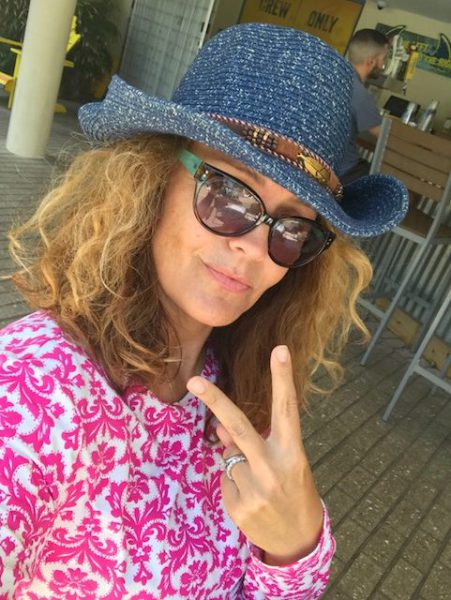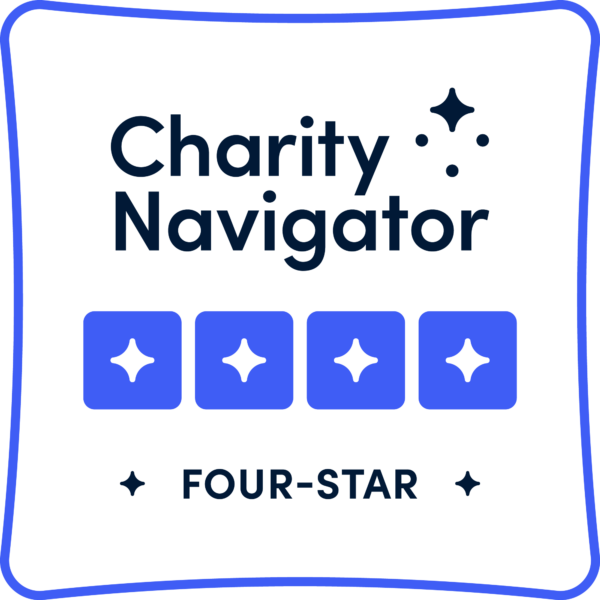Skin cancer is the most common type of cancer but, thankfully, it is also one of the most treatable when it’s detected early. While survival rates are high, most skin cancer patients quickly learn that you’re not completely out of the woods once a skin cancer has been removed. Not only do you have a higher risk of developing skin cancers in the future, but preventative measures and changes to your daily routine are unavoidable. Just ask ABC News anchor Michelle Charlesworth, an old friend of The Skin Cancer Foundation, who shared her story back in 2002 and recently checked in to update us on how her life has changed since her diagnosis.
“I can’t believe it’s been 17 years since I had a basal cell carcinoma (the most common form of skin cancer) removed. Luckily, I have been cancer-free since then,” says Charlesworth, who was diagnosed in 2001, just a couple of years after joining the crew at ABC News in New York. “Even though so much time has passed, not a day goes by where I’m not mindful of my experience — 365 days a year, I am on top of it.”
Remaining Vigilant

Charlesworth shows off her sun safe style on a recent trip to Florida.
Charlesworth recalls the chance encounter which led to her skin cancer discovery, “I was filling in for a health story which I don’t usually cover and the dermatologist I was interviewing red-flagged an anomaly.” The doctor was right, the suspicious spot was indeed cancerous. Charlesworth remains fortunate for the unusual work assignment that changed her life. Today, Charlesworth performs monthly self-exams and regularly shares her experience with others. “I tell anyone: ‘Anything that was not there before, any shape, any abnormality, get it checked!”
Noting biannual, dermatologist-performed skin exams and daily sunscreen application (of SPF 60!), Charlesworth attests to the fact that even just one skin cancer diagnosis from almost two decades ago sticks with you for life. “This is something I will always have to take care of. Therefore, I made it easier on myself by finding a dermatologist nearby in the city, so there’s no excuse not to get checked. Honestly, it’s been a great thing,” states Charlesworth.
Embracing Her Scar and A New Commitment to Sun Protection
After visiting a doctor who confirmed she had skin cancer, Charlesworth had Mohs surgery to remove the lesion. Now she has a faint scar from the edge of her nose to her mouth that she wears proudly. “Surgery doesn’t mean the end of your face,” she says. “Many people are afraid to get theirs removed for vain reasons and fear of scarring, but it’s important not to let the vanity aspect keep you from getting things checked out.”
As an anchor, Charlesworth is on camera every day, but she doesn’t use any special cover-up. “It’s funny because people always come up to me and say, ‘Your skin looks amazing,’ then proceed to ask what night cream I use. But I tell them all, ‘It’s not what you do before going to bed; it’s what you do before leaving the house every day, and that means applying sunscreen!”
Looking Ahead
Charlesworth is living proof that the battle isn’t over after treatment. In the years since her diagnosis, she has a new appreciation for sun protection and takes the extra steps needed to prevent recurrence and guard against new threats. “I admit that I still love the beach, but now I hang under an umbrella, cover myself in sunscreen and wear high-UPF (ultraviolet protection factor) clothing,” states Charlesworth. “I express to people often, it’s not about repairing things; it’s about prevention.”
Since her skin cancer experience, Charlesworth has celebrated some pretty big milestones, including getting married and having two beautiful children. “In March, I celebrated 20 years at ABC,” she says. Nowadays, when she’s not busy reporting on current events, she is a sun safety advocate, encouraging healthy behaviors and sharing her knowledge of skin cancer risks and warning signs whenever she can. “I’ll go up to complete strangers if I notice a spot on them that looks ‘off’ and tell them they should get it checked — to which they all think I’m some crazy lady,” she laughs.




